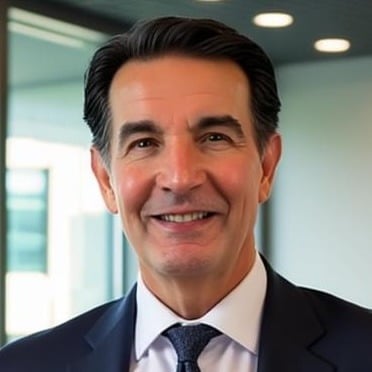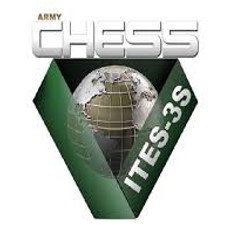
I travel on business frequently and am acutely aware of changes in airport and travel policies and procedures. I have observed a growing trend in the number of wheelchairs moving quickly through the front of the security line and queued-up for early boarding. This observation reached a tipping point last week.
I was flying from Denver to LA and arrived at the gate about 30 minutes prior to boarding time. A couple of wheelchairs were already queued-up for early boarding - nothing out of the ordinary. However, as boarding time approached the number of wheelchairs queuing-up for early boarding grew substantially. Very noticeable – definitely got my attention.
There is little that I have not seen or experienced in business travel. However, I innocently, and in retrospect, a bit naively, asked the gate agent if this large contingent of passengers in wheelchairs and their accompanying travel companions were part of a some type of travel club or travel tour.
Miracle Flights
The answer was unexpected and caught me a bit by surprise. The gate agent chuckled softly and said something the affect “Oh, not a all, this is one of our miracle flights – a lot of people now arrive at the gate via wheelchair - and miraculously, by the time they reach the destination airport, many are no longer in need of wheelchair assistance – our flight crews are miracle workers.”
Coincidently, shortly after the flight, I came across an article on the travel web site Skift regarding the increase in fliers faking injuries to cut lines at the airport. The link is skift.com/2012/10/08/fliers-fake-injuries-to-cut-lines-at-the-airport/.
The underlying topic in my discussion with the gate agent (and in the article link above) is about how airports and airlines accommodate Passengers with Reduced Mobility (PRM). In some jurisdictions it’s the responsibility of the individual airlines. In an increasing number of jurisdictions it is a legal obligation of the airport to provide PRM services.
In general (it varies by jurisdiction) an airline passenger can request PRM wheelchair services, while making a reservation or during the check-in process. The PRM service enables passengers and their companions, with the aid of an airport PRM service associate, to bypass (move directly to the front) of the security line, receive PRM escort to the departure gate and early boarding of the flight.
Gaming the System
Passengers requesting PRM assistance are not required to present proof of disability and PRM assistance is provided at no additional cost to the passenger. PRM assistance is based on the honor and integrity of the passengers requesting PRM assistance.
Unfortunately, however, many able-bodied passengers are “gaming” the honor system in order to consume the services of the people truly in need of PRM assistance – resulting in miracle flights.
The term “gaming the system” refers to gaining an understanding of the rules (business policies, procedures, etc.) that are in place to help ensure the integrity (order, discipline, consistency, etc.) of a system or process – and then manipulating those rules to achieve a better outcome of the system or process as an individual player - at the detriment of stakeholders of the process or system as a group.
Gaming the system might seem like a smart move at the individual player level. And, like a Ponzi scheme, in the short run it may work to the advantage of the early movers into the game. However, for gaming to be successful, there must be unwitting chumps in the game. Eventually, the unwitting chumps catch-on and the game implodes!
The Game and Gamers
The business processes and supporting business policies and procedures in connection with PRM were established to enable passengers with special needs to move through security and to the gate quickly.
And, because of PRM services, the overall end-to-end check-in, security and boarding process for all stakeholders (check-in agents, passengers, TSA, gate crew, etc.) to the process runs more smoothly.
However, when able-bodied passengers take advantage and bend the rules to “work” the system (aka Game the System), the system breaks down over time for everyone.
The unscrupulous first-movers into the game get the ball rolling. The next tier of passengers that game the system are the people that would not otherwise game the system, but see the first-movers gaining advantage - and so they also get into the game.
The next tier is the vast majority of passengers that play by the rules. They observe the game, become irritated with the gamers and don’t want to be the unwitting chumps in the game. However, rather that joining the game, they vociferously express their displeasure with the game.
The Outcome of Gaming
The system designed to effectively and efficiently deliver an important service to appropriate passengers and to the stakeholder community breaks down and hurts everyone.
By “breaks-down” I mean that the system of opting-in to PRM based on the honor system and providing PRM services at no additional cost to the PRM recipient is no longer viable.
The greater traveling public is not going to tolerate the gamers. The system will be changed to mitigate the gaming. This could play-out in many forms.
One option, for example, is to require PRM recipients to provide proof of need - meaning that the recipient will need to secure a physicians statement of some form (at a cost to the recipient). Some gamers, however, will just take the game to the next level and secure a physicians statement. And, of course there is a cost to the Airport (which will be passed on to all passengers as a group) to administrate the new policies and procedures.
Another option is to charge a fee for PRM services. This approach removes the gaming element. PRM becomes a fee-based value-added service to enable any passenger to move through security quickly. Great for business travelers like myself, who are happy to pay a fee to fly through security, but maybe not such as great concept for many people that require PRM assistance that are not frequent business travelers.
Regardless of the eventual solution, you get the point – enabling and allowing a system to be gamed ultimately brings down the system or requires the system to operate at lower levels of effectiveness (yielding less value to customers) and/or lower levels of effectiveness (higher costs to maintain levels of effectiveness).
In Part II I apply the concept of “gaming” to Business Process Reengineering (BPR) and overcoming “unintended consequences” resulting from implementing changes in business processes.
* * * * *
Subscribe to my blog | Visit our Knowledge Hub
Visit my YouTube channel | Connect with me on LinkedIn
Check out our Business Analysis Training Courses and Consulting Services




















